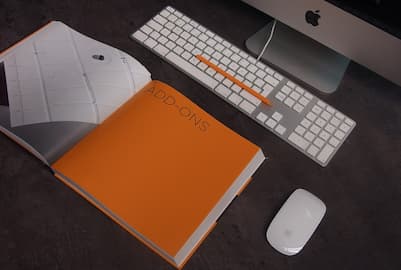It's easy to feel overwhelmed at work. Stress becomes part of everyday life and makes tasks much longer and less enjoyable. Organizing yourself well at the office helps limit this stress.
organized and not being stressed at the office
1- A personalized office
Having a personal organizational structure of one's workspace is essential in order to stay in control. Patterns, colors, shapes and office layout can help make it easier to recognize work elements. So don't hesitate to indulge in a little extravagance. The visual plays a very important role in recognition and appropriation of one's work environment. In addition, keeping your desk in order avoids excessive stress because everything is easier to find and manage.
2- Organized information
E-mails should never accumulate in the inbox. Messages offer filing methods: it is recommended to use them by creating folders specific to each type of message. This method of categorization makes it easier to find one's e-mails and to remember to reply to an important message. To make sure you don't omit an e-mail that required follow-up, you can use flagging. It is advisable to classify as you receive it or once a week.
3- Phone calls can wait
The ringing of the phone should not interrupt work too frequently as distraction leads to several omissions. During periods of heavy work, it is recommended to leave the telephone on an answering machine: in addition to putting a stop to the ringing, the answering machine allows you to read messages smoothly. In addition, making a frequent contact sheet and placing it next to the unit will save time.
4- Lists
Lists are the organization tools par excellence. It is suggested to always maintain three kinds of lists, each with a specific format: lists of long-term projects (on a large sheet of paper), lists of weekly occupations (on a half sheet of paper) and lists of daily tasks (on a large post-it).
5- A calendar... up to date!
Maintaining and updating a calendar allows you to have a global view of deadlines and appointments. The calendar allows you to impose time limits on yourself: it is possible to note the date when a project must be completed in order to stay within the time constraints imposed personally or professionally.
6- Focus on one work at a time
Starting several projects at the same time is not productive and causes panic and stress. In addition, it makes you more vulnerable to forgetfulness. To perform only one task at a time, limits can be imposed, such as viewing messages, which can be restricted to 4 times a day.
7- Reserving time slots for pleasure
In order to decompress at work, it is important to allow yourself some time to relax and to devote yourself to pleasant and personal activities that have nothing to do with professional occupations.
8- Automation
Several tools have been created to facilitate small recurring tasks, so do not hesitate to use them. Using messaging tools to create a signature or standard messages can save a lot of time.
9- The bulletin board a visual memory tool
A bulletin board allows you to have in front of you the elements to be memorized. Using it with colored post-it notes facilitates a personal and efficient organization. Moreover, it is easy to manage because completed items can be deleted from the board. The arrangement of colors and patterns will create a visual memory that speeds up the retrieval of information.
10- An idea map
Organizing your ideas is often a difficult step. To better organize your ideas, the Englishman Tony Buzan has developed the concept of map minding. This form of organization allows better management of note taking, brainstorming, project structuring, speech preparation and organization of computer files. A completely free software allows you to have your personalized map of ideas on the computer: Xmind.


Post A Comment:
0 comments so far,add yours